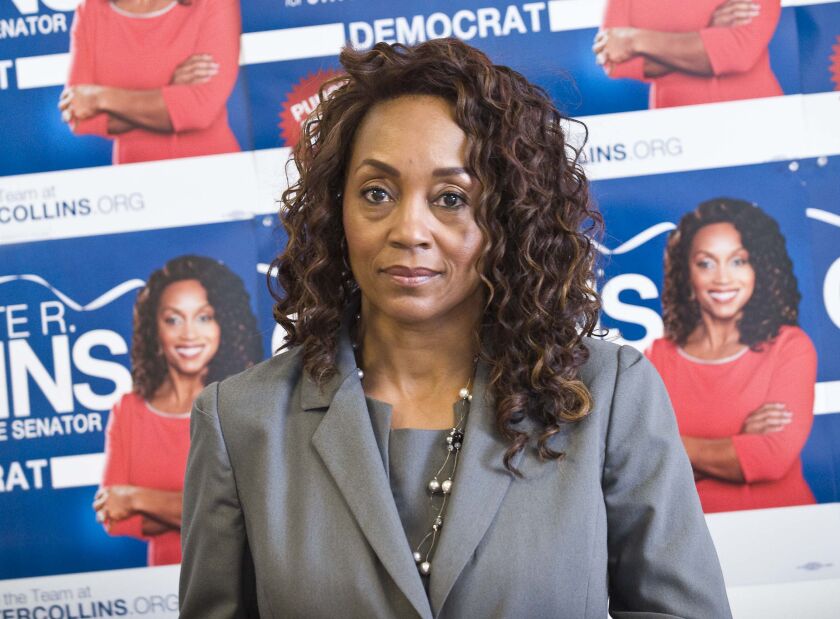In the closing days of the spring legislative session, as it became apparent state lawmakers were going to approve a major gambling expansion, the leading proponent of so-called sweepstakes machines began desperately hiring lobbyists in a last-ditch effort to avoid getting left on the sidelines.
Among those who agreed to advocate for legalization of the gambling devices was Frank Bass, a Statehouse veteran who got his lobbying start nearly two decades earlier as a legislative liaison for Cook County government.
Bass said he was paid $2,000 for one day’s work by James Weiss, whose Collage LLC has pushed for both state and city regulation of sweepstakes machines.
“They wanted me to talk to members of the black caucus,” Bass said.
The effort failed. Bass said it quickly became apparent Sen. Terry Link, a Lake County Democrat and a major architect of the gambling bill, was unalterably opposed.
Sweepstakes machines were left out of the new law that among other things authorized a new Chicago casino, leaving sweepstakes proponents in the same legal limbo in which they dubiously claim to be distinct from the video poker machines they mimic. The charade has allowed them to operate in Chicago and other communities that prohibit video gaming.
Three months after the legislative rejection, federal authorities say (now former) state Rep. Luis Arroyo (D-Chicago) paid a $2,500 bribe to a state senator working undercover to get him to support a revived sweepstakes legalization push. The Sun-Times has identified that state senator as Link, who has denied involvement.
That’s a long windup to get to my main point, which is that Bass never registered to lobby on behalf of Collage or the sweepstakes folks.
Neither did former state Sen. Annazette Collins of Chicago, who sources tell me also was lobbying in support of the sweepstakes machines in those final days of May but has never officially disclosed it.
I wouldn’t have known anything about their involvement if I hadn’t been poking around.
A third end-of-session sweepstakes lobbyist, Frank McNeil, a former state official and Springfield alderman, did register for Collage, but not until Oct. 29 — after I started making calls.
By law, lobbyists have two business days to amend their registration to disclose a new client after entering into an agreement to perform lobbying services.
McNeil said he forgot. Collins did not respond to my phone calls.
Bass said he didn’t think he needed to register because by the time he was required to file his disclosure the session had ended and he was no longer working for Collage.
C’mon, Frank. You know better.
Look, I’m not the lobbyist registration police, and I’m not trying to get anybody in trouble.
What I’m trying to do is to alert Gov. J.B. Pritker and anyone else who cares that the lobbyist disclosure system in Illinois has much bigger problems than any half-measures the governor may try to pass during this coming week’s wrap-up to the fall veto session in response to the growing political corruption scandals.
Many lobbyists these days put as much effort into coming up with novel legal theories to avoid disclosing their clients as they do representing them.
And even when they do disclose, they often resort to a Russian doll strategy of obfuscation, where lobbyists are allowed to hide their efforts by reporting only that they’ve been retained by other lobbyists, instead of naming the underlying clients.
Pritzker seemed to acknowledge the depth of the problems in comments this week promising to advance his own modest lobbying reform proposal as a “small start.”
The governor is clearly feeling the pressure to “do something,” which is fine, because it’s good to strike while the iron is hot to overcome the incredible resistance in Springfield to do anything real.
But what we don’t need is for the General Assembly to bite off some small piece like making lobbyists disclose their compensation and allow that to become an excuse next year to do nothing more. I’ve seen it happen.
If it were up to me, I’d make state lawmakers and bureaucrats fill out a contact card every time they were approached by a lobbyist. This would be patterned after the practice of police officers filling out such cards to document their contact with individuals they stop on the street. Maybe they could make it into an app.
No, that’s not a realistic proposal, but I’ll bet it would double the number of lobbyist registrations in the first year.
Make no small plans, governor, and jam it down their throats if necessary.







